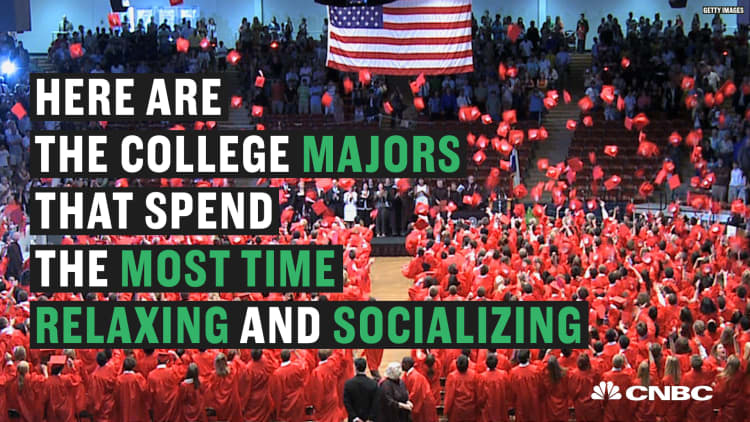From Elon Musk's obsession with underground tunnels to Jeff Bezos' fascination with building the ultimate rocketship, Silicon Valley billionaires are constantly talking about how they want to change the world.
One more concrete area of focus for this set: public education. Three tech executives — Marc Benioff, Reed
The tech industry has long encouraged school districts to invest in computer science education, in the hopes that public schools will provide the workforce of tomorrow with skills that will benefit their companies. Many parents do, in fact, want to send their children to schools that will prepare them to work for companies like Facebook.
"Given the changes in innovation that are underway with artificial intelligence and automation, we need to try everything we can to find which pathways work," said Emmett D. Carson, chief executive of Silicon Valley Community Foundation.
Companies have a lot to gain from remaking schools in their own image. The market for selling computers and software to U.S. schools is projected to reach $21 billion by 2020, according to The New York Times — an awfully attractive prospect for companies like Salesforce and Facebook.
Here is exactly what these three
1. Marc Benioff
In 2008, Marc Benioff, the
"He's almost a public-sector V.C.," said Richard A. Carranza, former superintendent of San Francisco schools.
These funds have helped the district hire new math teachers, bring on "technology coaches," develop a comprehensive computer science curriculum and install Wi-Fi.
Benioff also created the Principal's Innovation Fund, which gives $100,000 to the principals of all 21 of San Francisco's middle and K-8 schools to encourage them to "behave more like start-up founders and less like bureaucrats."
2. Reed Hastings
Netflix CEO Reed Hastings believes in the power of predictive algorithms. That's why, in 2010, he gave a nonprofit charter school fund $11 million so that schools could acquire a math platform called DreamBox Learning.
Similar to how Netflix tracks your activity and uses algorithms to make suggestions for what to watch, DreamBox collects about 50,000 data points per student per hour to customize how they learn math. Today, over two million students use DreamBox.
A report from Harvard University's Center for Education Policy Research found that students who used DreamBox had higher math scores, but no study has yet proven that DreamBox is the reason for these improved scores.
3. Mark Zuckerberg
Facebook has invested considerable time and resources into creating a software that encourages students to teach themselves. In 2015, its co-founder and CEO, Mark Zuckerberg, argued that this learning approach "frees up time for teachers to do what they do best — mentor students."
This belief led Zuckerberg and his wife, Priscilla Chan, to launch The
Last fall, Zuckerberg visited an impressive school in Peru and said, "When you visit a school like this, it feels like the future — it feels like a start-up. You get the feeling this is how more of the education system should work."
Don't miss: The 15 hottest tech companies in America, according to LinkedIn



